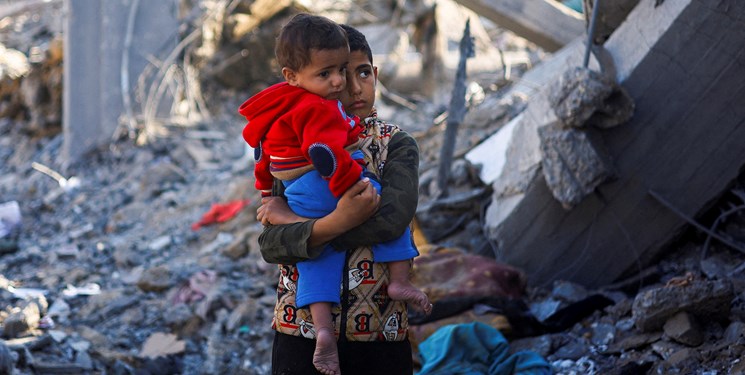At the Nova festival site in southern Israel, attacked by Hamas gunmen on 7 October, the families and friends of Israeli hostages began a long march to Jerusalem on Wednesday.
The festival site, near Kibbutz Re’im, is where hundreds of Israelis were killed and hundreds more dragged away into Gaza.
The marchers, carrying pictures of those still missing, are demanding that their government do more to bring the remaining 134 hostages home.
Their hopes have been raised by talk of a ceasefire.
“One hundred and forty-five endless days and nights of yearning for our loved ones,” Ronen Neutra said, addressing the crowd.
Ronen’s 22-year-old son, Omer, is somewhere in Gaza.
“We send them strength, and ask them to hold a little longer,” Ronen said.
“Omer, just a little longer. A deal is possible.”
Since US, Egyptian and Qatari mediators met in Paris last weekend, the Israeli press has been full of talk of a deal to pause the fighting.
No document has been made public, outlining the latest proposals, but when Joe Biden said an agreement might be in place by Monday, speculation only increased.
It is thought a ceasefire could last for six weeks, during which time 40 Israeli hostages would gradually be released. Female civilians and soldiers would be freed first.
In return, around 400 Palestinian prisoners, some of them convicted of serious terrorist offences, would be released from Israeli jails.
Israeli soldiers might move away from some of Gaza’s most populated areas, and some of the 1.8 million Palestinians displaced by the fighting since October might be able to return to homes in the north.
But with talks still going on in Qatar this week – where Egyptian and Qatari mediators are shuttling between Israeli and Hamas delegates – it is clear that most issues are still up in the air.
Reports suggest that there is still wrangling over the number of Palestinian prisoners released for each Israeli hostage.
Nor is there yet thought to be agreement on the redeployment of Israeli soldiers or the return of Palestinians to their homes.
But Haim Tomer, a former Mossad chief of division, with experience of previous negotiations, told me he was optimistic.
“I think that we are pretty close,” he said.
“I’m not saying that for sure we will see the release of hostages and Palestinian prisoners. But I think that the negotiation is getting forward.”
He cited comments by the Qatar-based leader of Hamas, Ismail Haniyeh, who gave the first oblique hint on Wednesday that the group might be softening its position on a deal.
“Any flexibility we are showing in the negotiations,” he said in a televised address, “is to protect the blood of our people and to put an end to their huge pains and sacrifices in the brutal war of extermination against it.”
Mr Haniyeh went on to say that Hamas was ready to keep fighting if necessary, and he urged Palestinians in the West Bank and Jerusalem to defy Israeli restrictions and march on Jerusalem’s al-Aqsa mosque during the Muslim holy month of Ramadan.







